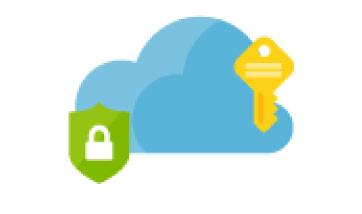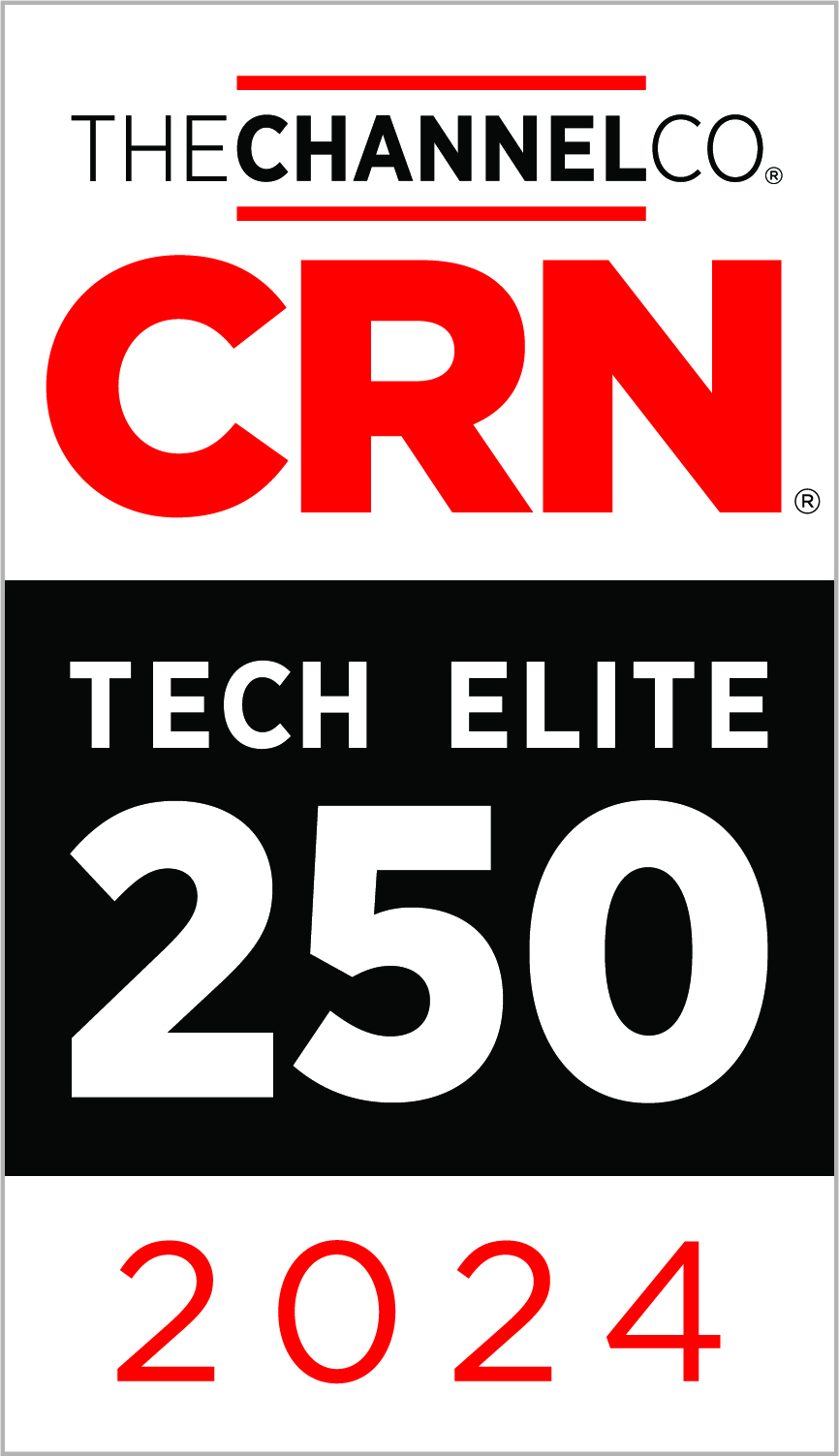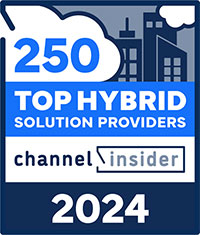Private, Public or Hybrid Cloud – What's the Difference?

Cloud computing has definitely impacted how most enterprise IT Departments are managing their overall IT architecture. Businesses are constantly reevaluating what infrastructure will work best for their environment. Is it private cloud, public cloud, or hybrid cloud? What are the differences between these types of clouds? All three options provide similar benefits, including cost-effectiveness, performance and reliability but ultimately which deployment method a business chooses is dependent upon their business needs.
Public Cloud
 Public cloud is a term for cloud computing services offered over the public Internet and available to anyone who wants to purchase them. This type of cloud typically offers the greatest level of efficiency in shared resources however they are typically more vulnerable than private clouds. Microsoft Azure is an example of a public cloud. All hardware, software, and other supporting infrastructure is owned and managed by the cloud provider. You share the same hardware, storage, and network devices with other organizations or “cloud tenants.” You access your services and manage your account using a web browser.
Public cloud is a term for cloud computing services offered over the public Internet and available to anyone who wants to purchase them. This type of cloud typically offers the greatest level of efficiency in shared resources however they are typically more vulnerable than private clouds. Microsoft Azure is an example of a public cloud. All hardware, software, and other supporting infrastructure is owned and managed by the cloud provider. You share the same hardware, storage, and network devices with other organizations or “cloud tenants.” You access your services and manage your account using a web browser.
A public cloud may be a good option when:
- Your workload for applications is used by lots of people, such as email
- You have SaaS (Software as a Service) applications from a vendor who has a well implemented security strategy
- You need incremental capacity (ability to add computer capacity for peak times)
- You are doing collaboration projects
- You are doing an ad-hoc software development project using a Platform as a Service (PaaS) offering cloud
- Testing and developing environments
Public cloud storage is for the most part cheaper than on-premises storage especially when you look into the upkeep and upgrades you may need with your hardware. Most cloud-storage services can accommodate periodic surges and typically have security protocols in place to protect your data including backup in a second location.
The biggest warning is to make sure that your business takes the extra time and due diligence to ensure you have security and governance issues well planned. This option may work best for small businesses since they typically do not have a lot of proprietary information that requires extra security.
Private Cloud
 A private cloud consists of computing resources used exclusively by one business or organization. It can be located physically at a business’ on-site datacenter or it can be hosted by a third-party service provider. The services and infrastructure are always maintained on a private network and the hardware and software are dedicated solely to the organization to allow your business to customize its resources to best fit your specific IT requirements. Private clouds are often used by government agencies, financial institutions and other mid to large size organizations where its critical to have control over their IT environment.
A private cloud consists of computing resources used exclusively by one business or organization. It can be located physically at a business’ on-site datacenter or it can be hosted by a third-party service provider. The services and infrastructure are always maintained on a private network and the hardware and software are dedicated solely to the organization to allow your business to customize its resources to best fit your specific IT requirements. Private clouds are often used by government agencies, financial institutions and other mid to large size organizations where its critical to have control over their IT environment.
Advantages include:
- Ability to customize the cloud environment to meet your specific business needs
- Improved security since your resources are not shared with others
- High Scalability
Here are some additional indicators that your application may be a good fit for the private cloud:
- Application has very predictable usage patterns and low storage costs
- You need high performance access to a file system. For example, a media company that creates or produces large videos
- An application that may be poorly written or infrequently used that may not be worth the effort of moving it to the public cloud
Hybrid Cloud
 A hybrid cloud is becoming a more popular choice for businesses of all sizes. In 2015, almost 90% of enterprises said they were looking to pursue a hybrid cloud solution. It is where both public and private cloud are utilized to host your data. In a hybrid cloud, both data and applications can move between private and public clouds for greater flexibility.
A hybrid cloud is becoming a more popular choice for businesses of all sizes. In 2015, almost 90% of enterprises said they were looking to pursue a hybrid cloud solution. It is where both public and private cloud are utilized to host your data. In a hybrid cloud, both data and applications can move between private and public clouds for greater flexibility.
Cloud bursting is also an option when using a hybrid cloud. Its when an application or resource runs in the private cloud until there is a spike in demand such as during the holiday season when online shopping is at its peak and then at that point, the organization can “burst through” to the public cloud to tap into additional computing resources.
Advantages of hybrid clouds:
- Control: you can maintain a private infrastructure for sensitive assets
- Flexibility: take advantage of additional resources in the public cloud when you need them
- Cost-effectiveness: You pay for extra computing power only when needed
- Ease: You can migrate to the cloud gradually and phase in workloads over time.
A hybrid environment is only as strong as the integrations that unite them. The team managing the infrastructure should always be running performance monitoring, regular testing, and data ingress and egress procedures to reveal possible areas of difficulty and when to further evolve the application.
When deciding what cloud platform works best for you, its best to analyze your business’ needs and what will work the best for your budget, security, and compliance. Zunesis account managers and solution architects are available to sit down with you for a discovery of what will work best for your organization. We have relationships with several great partners including Microsoft and HPE that can take your business to where you want to go in terms of cloud computing. Contact us today to find out more on how we can help.
Categories
Search
Blog Categories
Related Resources
Archives
- July 2024
- June 2024
- May 2024
- April 2024
- March 2024
- January 2024
- October 2023
- September 2023
- August 2023
- July 2023
- June 2023
- May 2023
- April 2023
- March 2023
- February 2023
- January 2023
- October 2022
- July 2022
- June 2022
- May 2022
- April 2022
- March 2022
- February 2022
- January 2022
- December 2021
- November 2021
- October 2021
- September 2021
- August 2021
- July 2021
- June 2021
- May 2021
- April 2021
- March 2021
- February 2021
- January 2021
- December 2020
- November 2020
- October 2020
- September 2020
- August 2020
- July 2020
- June 2020
- May 2020
- April 2020
- March 2020
- February 2020
- January 2020
- December 2019
- November 2019
- October 2019
- September 2019
- August 2019
- July 2019
- June 2019
- May 2019
- April 2019
- March 2019
- February 2019
- January 2019
- December 2018
- November 2018
- October 2018
- September 2018
- August 2018
- July 2018
- June 2018
- May 2018
- April 2018
- March 2018
- February 2018
- January 2018
- December 2017
- November 2017
- October 2017
- September 2017
- August 2017
- July 2017
- June 2017
- May 2017
- April 2017
- March 2017
- February 2017
- January 2017
- December 2016
- November 2016
- October 2016
- September 2016
- August 2016
- July 2016
- June 2016
- May 2016
- March 2016
- February 2016
- January 2016
- December 2015
- October 2015
- September 2015
- August 2015
- July 2015
- June 2015
- May 2015
- April 2015
- March 2015
- February 2015
- January 2014
- February 2013




